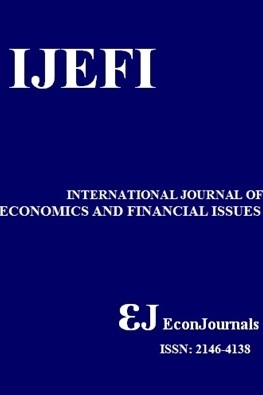Corporate Regulation of Unethical Practices: Assessment of Nigeria’s Commercial Banking Industry
Corporate Regulation of Unethical Practices: Assessment of Nigeria’s Commercial Banking Industry
Regulation banking, compliance, unethical, insider dealing and stakeholder,
- Başlangıç: 2011
- Yayıncı: İlhan ÖZTÜRK
Kamran BARGHANDAN, Mosayeb PAHLAVANİ, Mohammad Nabi Shahik TASH
Abdulazeez Y.H. Saif-Alyousfi, Asish Saha, Rohani Md-Rus
Effect of Solow Variable To The Economic Growth in Southeast Asia
Ady Soejoto, Hendry Cahyono, Ni’matush Solikhah
The Effect of Liberalization on Export-Import in Indonesia
Trade Policies, Exchange Rate and Developing Country’s Real Sector Export Performance
Richardson Kojo EDEME, Nelson C. NKALU, Chisom EMECHETA, Sam UGWU
Exchange Rate Movements, Stock Prices and Volatility in the Caribbean and Latin America
Andre Yone Haughton, Emma M. Iglesias
Poverty as an Obstacle for Travel: Domestic Tourism Activities in Spain
Volkan Altintas, Demet Tuzunkan
The Impact of Dow Jones Sustainability Index on US Dollar Value
Grigoris GİANNARAKİS, Alexandros GAREFALAKİS, Christos LEMONAKİS, Nikolaos SARİANNİDİS
Corporate Regulation of Unethical Practices: Assessment of Nigeria’s Commercial Banking Industry
Olabode A. OYEWUNMİ, Olamide OLUSANMİ, Olusola J. OLUJOBİ, Folashade ADEGBOYE
